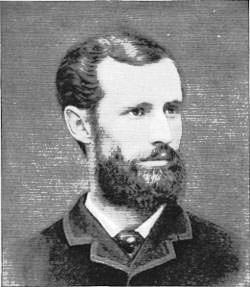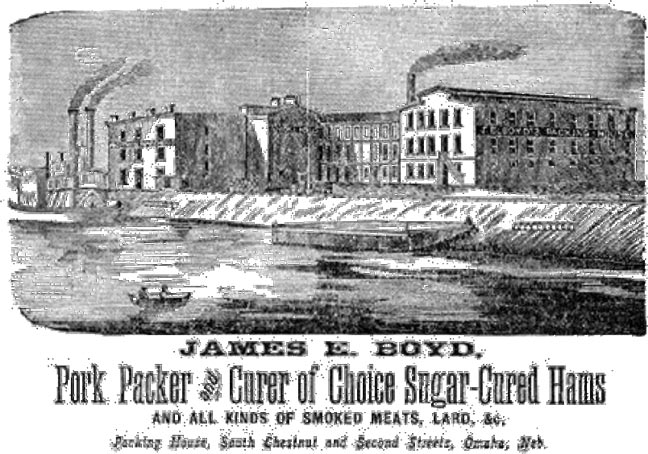“Quite an exciting scene was witnessed last evening, on the river bank just opposite Boyd’s packing house,” said the Omaha Daily Bee on January 23, 1882, “which came near resulting very seriously.” An accident victim, rescued from a fall through Missouri River ice in a “Narrow Escape,” was a horse. The owner, Omaha businessman Clifton E. Mayne, also slipped into the icy water but managed to extricate himself and summon rescuers for his drowning horse.
Like other travelers, Mayne was accustomed to crossing the Missouri on the ice when it was frozen over during the winter months, and he was returning across the river to Omaha from Council Bluffs when the accident occurred. His horse, a valuable animal he had named Oscar Phelps, was hitched to a light buggy. The Bee said, “When part way over, he observed some boys who were skating making violent signs at him and stopped to see what was wanted, when one of them came up and told him he was driving on dangerous ground. On getting out and examining the ice he found his horse’s fore feet within six inches of a space where ice had been cut out and the new ice was so thin that the boy who warned him readily broke it through with his skate.
“Mr. Mayne then made a wide detour and had nearly reached the Nebraska shore when suddenly his horse broke through with his fore-feet. He got out and unhitching him pulled the buggy back and then took the horse by the bit and tried to get him on the solid ice. The animal, however, floundered about so that he broke the ice in all directions about him, letting himself and his owner down in the water. Mr. Mayne scrambled out, but the horse worked himself under the ice, all but his head, which rested on a cake of ice which alone prevented him from being drowned.”
Once out of the water, Mayne wasted no time in getting help for his horse. Several workmen from James E. Boyd’s Omaha packing house, located nearby on the river bank, “took ropes, planks, etc., and finally succeeded in getting the horse out, in a half-dead condition. Dr. Chambers was telephoned for and the horse was taken to one of Mr. Boyd’s stables, where he was cared for until he was in a condition to be driven home.
“The accident happened about 4 o’clock and it was 6 o’clock before the horse was rescued from his perilous condition. It was a wonder that he was ever rescued at all. A crowd of not less than 500 people gathered on the bank and watched the efforts made to save the animal. A number of teams had crossed in the same locality during the day and it is a matter of surprise that some did not meet the same fate.”
The rescuers of Oscar Phelps certainly deserved a suitable reward for their successful efforts. The Bee noted, “The point at which the accident happened was just where all the filth from Boyd’s packing house is discharged into the river and the work was done in the face of sickening filth and stench.”  Clifton E. Mayne. From Omaha Illustrated (Omaha, 1888).
Clifton E. Mayne. From Omaha Illustrated (Omaha, 1888).
 Men from James E. Boyd’s packing house near the Missouri River helped rescue Oscar Phelps. From NEGenWeb Archives.
Men from James E. Boyd’s packing house near the Missouri River helped rescue Oscar Phelps. From NEGenWeb Archives.



